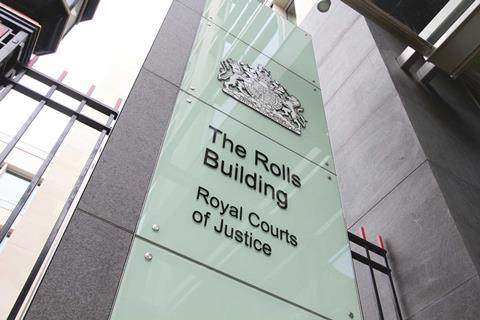A defunct firm and an ex-partner must pay almost £1m to compensate for losses caused by professional negligence in the handling of a property trust.
The High Court set the figure following a trial on quantum last month in Gosden & Anor v Halliwell Landau (a firm). The firm, which later became the now-defunct practice Halliwells, and its former partner Philip Laidlow, were successfully sued for negligence in the implementation of a proprietary tax mitigation scheme on a property which was sold without the claimants’ consent.
The claim had been brought by a couple who would have been beneficiaries of a London property on the death of the mother of one. The property was subject to a trust, created as part of a tax mitigation scheme, of which the claimants and deceased were trustees.

The property was sold in 2010 by the deceased in breach of trust without the knowledge or consent of either claimant. In his earlier judgment, His Honour Judge Pelling QC concluded the defendants had been negligent in failing to register a restriction at HM Land Registry to protect the interest in the property, but ruled this omission had not caused any loss. The Court of Appeal overturned that decision, concluding that damages fell to be assessed on a conventional rather than loss of chance basis.
The case having been remitted to Pelling HHJ for quantum assessment, the court heard the property's sale value of £875,000 had increased to £1.25m by 2017 when the claim was lodged. The claimants calculated their loss as the market value of the property and net rental income since 2013, when the mother died.
The judge assessed loss as at the date of the mother’s death, which would adequately compensate for the loss suffered as a result of the defendants’ negligence. He also concluded it was reasonably foreseeable at the date when the breach of duty occurred that the first claimant would retain the property for at least some years to generate rental income.
The court awarded the claimants £985,299, based on the figure agreed between the parties following the judge’s conclusions. A separate costs ruling will be issued following the exchange of written submissions.



























6 Readers' comments